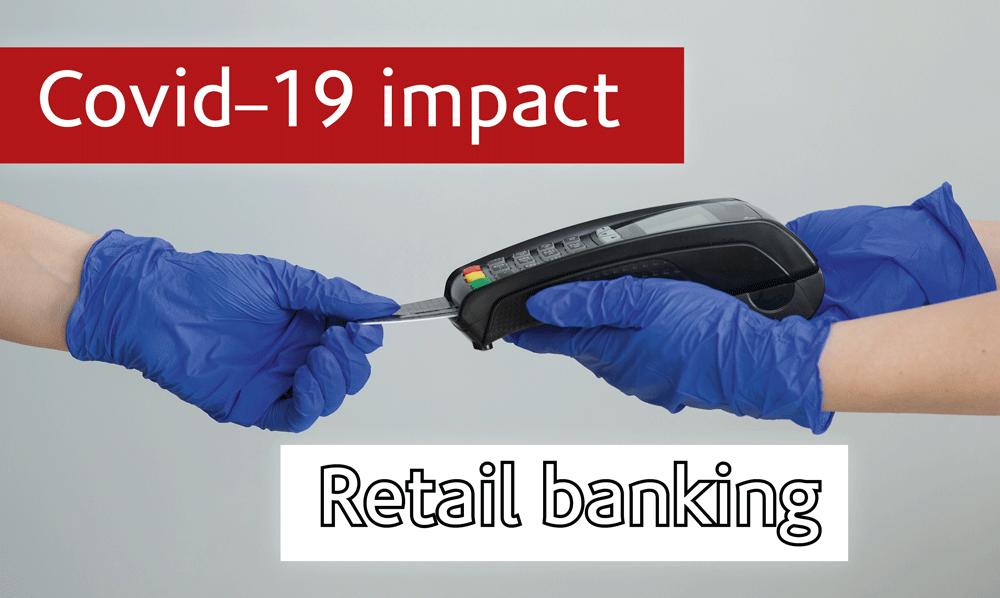Retail banking faces severe trial under Covid-19

Coronavirus outbreak accelerates digital transformation, but also provides a stress-test for financial institutions
Click here to download MEED’s Covid-19 retail banking sector analysis
Covid-19 and the accompanying period of economic paralysis is leaving much to be desired in many sectors, but it is particularly leaving a massive hole in bank balance sheets.
Fee and interest income are expected to fall, driven by reduced use of cards (interchange fees), and the obligation to provide payment holidays and waive interest and overdraft charges.
Non-performing loan (NPL) ratios are meanwhile projected to increase, particularly those taken out by small and medium-sized enterprises (SMEs) in sectors such as retail, travel, tourism and entertainment.
New mortgage lending will freeze, while net interest margins will remain low and/or be compressed further by rate changes.
Operational tally
At the organisational level, short-term costs will increase amid lost productivity from increased work from home, and scenario analysis and stress testing of possible Covid-19 impacts.
The massive increases in digital activity, both from employees working from home and customers using mobile apps/websites, will drive increased risk of performance disruption.
The International Labour Organisation estimates job losses of around 25 million worldwide.
Various measures are being implemented including fiscal stimulus steps, monetary easing through interest rate cuts, liquidity measures and a relaxation of capital rules.
Even so, operational challenges and lack of policy clarity have left some banks fearful of “writing blank cheques” when providing emergency finance.
By taking various counter-cyclical measures, banks nevertheless have a critical role to play in protecting employees, customers and the wider economy.



